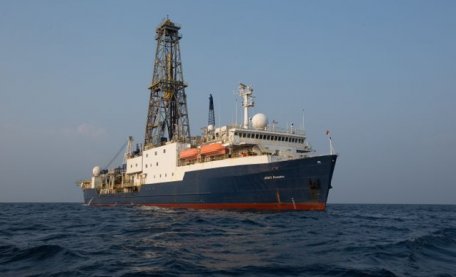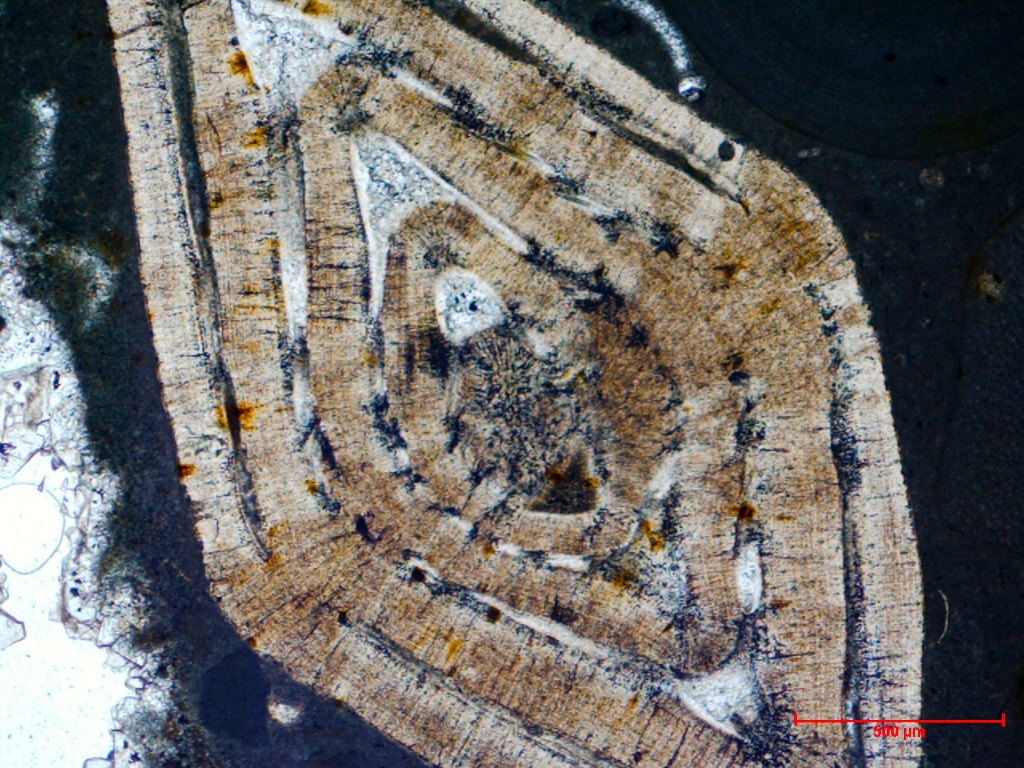Profile
Dr Kate Littler
Research
Research interests:
I'm broadly interested in reconstructing ancient paleoclimates and paleoceanography, from the greenhouse worlds of the Cretaceous and Paleogene to the burgeoning icehouse world of the Plio-Pleistocene.
I strive to understand how sensitive the Earth is to internal and external forcing, such as atmospheric CO2 levels or changes in orbital arrangement, and how the planet responded to transient and long-term changes in these parameters in the deep past. What can the past tell us about the future? What are the hidden non-linearities within the coupled climate-carbon cycle systems?
I use geochemical proxies, such as the stable isotope ratio of calcite microfossils (foraminifera) or biomarkers left by ancient organisms, contained within marine sediment cores recovered from the deep ocean depths by the International Ocean Discovery Program (IODP) and its predecessors. I have sailed twice as a shipboard sedimentologist with IODP; on Exp 324 to the North Pacific in 2009, and on Exp 353 (Indian Monsoon Rainfall) to the Bay of Bengal in 2014/15.
I am part of the Deep Time Global Change group at CSM. I (co)supervise several PhD students both at CSM and at other institutions. I collaborate with researchers from around the world who bring their expertise in other proxies such as trace element geochemistry, charcoal, pollen, radiogenic isotopes, and climate modelling, to bear on problems of mutual interest. I am always happy to discuss new collaborations.
Current projects
Decoding the ancient Indian monsoon
The Indian monsoon (South Asian monsoon) is responsible for supplying water to over a billion people, but its behaviour and stability under ongoing anthropogenic climate change is a matter of heated debate. Can we use evidence of past monsoon variability to constrain its near future? Our international team is targeting Pliocene and early Pleistocene sediments recovered during IODP Exp. 353 to unravel the mysteries of the ancient monsoon using sophisticated multi-proxy techniques. We are focused on understanding the role of the monsoons in the decent into Northern Hemisphere glaciation at ~2.7 Ma, and what lessons this might hold for the future.
You can read about our latest work on this topic at our new website ancientmonsoon.org, and more about life at sea and IODP Expedition 353 at deepseadiscovery.com.

Early Paleogene climate and carbon cycling
In close partnership with current and recent PhD students, I am interested in reconstructing various aspects of the early Paleogene world from evolving oceanic temperatures of the Atlantic and Indian Oceans, through to biodiversity hot-spots in the shallow waters of the Middle East. We are focused on understanding interactions between orbitally-paced fluctuations in the carbon cycle and concurrent changes in global climate, ocean circulation, and sea-level.
We use a variety of inorganic techniques, including foraminiferal geochemistry, larger benthic foraminiferal biostratigraphy, and good old fashioned sedimentology to unravel the mysteries of the Paleogene.

Active / recent grants:
- National Environmental Isotope Facility (NEIF) grant (PI Littler with Miss Olivia Graham and Dr David Naafs). "Testing a new paleo-pCO2 proxy though Pleistocene ice core validation". [2023].
- National Environmental Isotope Facility (NEIF) grant (with Mr Jinrong Gan, Dr Pallavi Anand, Dr Ian Bailey, Prof Mel Leng). "Reconstructing the South Asian monsoon during the dynamic Pliocene". [2021]
- NERC Isotope Geociences Facilities grant (with Dr Sev Kender, Miss Charlotte Beasley, Prof Mel Leng) "Investigating Paleogene strata from the tropical low-latitudes; using geochemistry and biostratigraphy to reveal new insights into the impacts of past global warming events". [2019]
- Interreg (EU): MARINEFF - MARine INfrastructures EFFects. Exploring novel eco-friendly concrete materials for marine construction in English/French waters. PI: Dr Jens Andersen, Co-I: Littler. [2018]
- Royal Society Research Grant "Reconstructing the ancient Indian Monsoon; applying novel organic proxies to deep-sea sediments" [2016]
- UKIODP Moratorium Award "Pliocene history of the Indian Monsoon: new data from IODP Exp. 353" [2015]
- NERC Isotope Geociences Facilities grant (with Mr James Barnet, Prof Mel Leng) "Investigating climate change and carbon cycling in the late Cretaceous-early Paleogene; new geochemical records from the South Atlantic and Indian Oceans [2016]
- NERC Isotope Geociences Facilities grant, "How did ocean circulation respond to repeated rapid warming events in the Early Paleogene greenhouse? A multi-proxy and modeling study of the Late Paleocene–Early Eocene" [2014]
